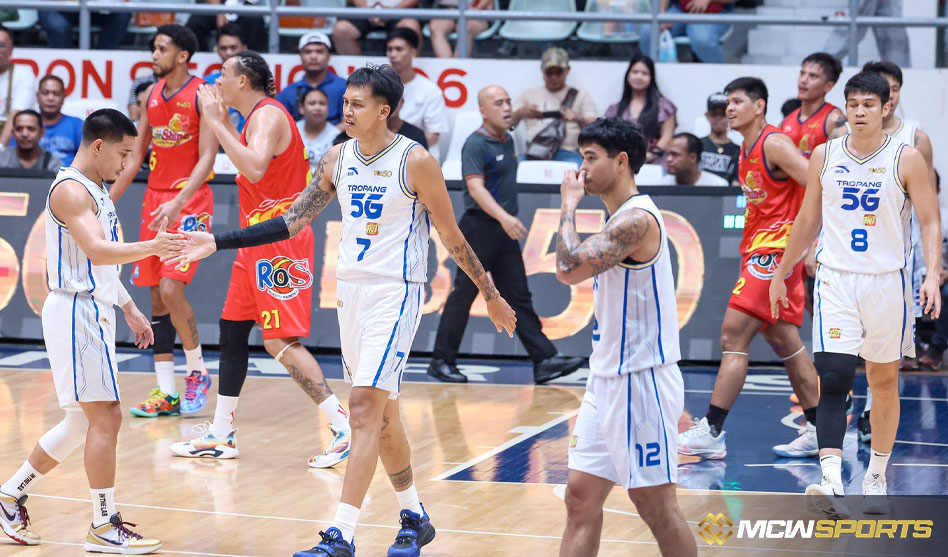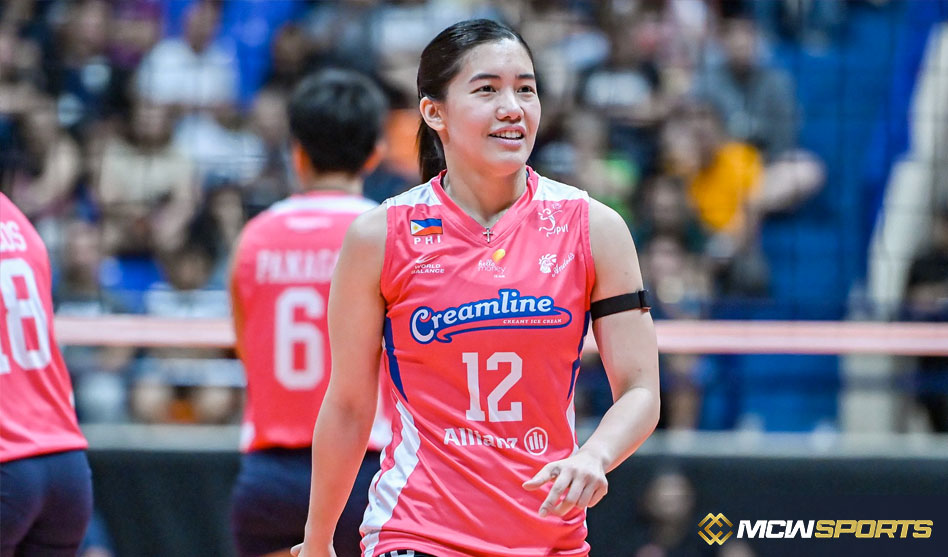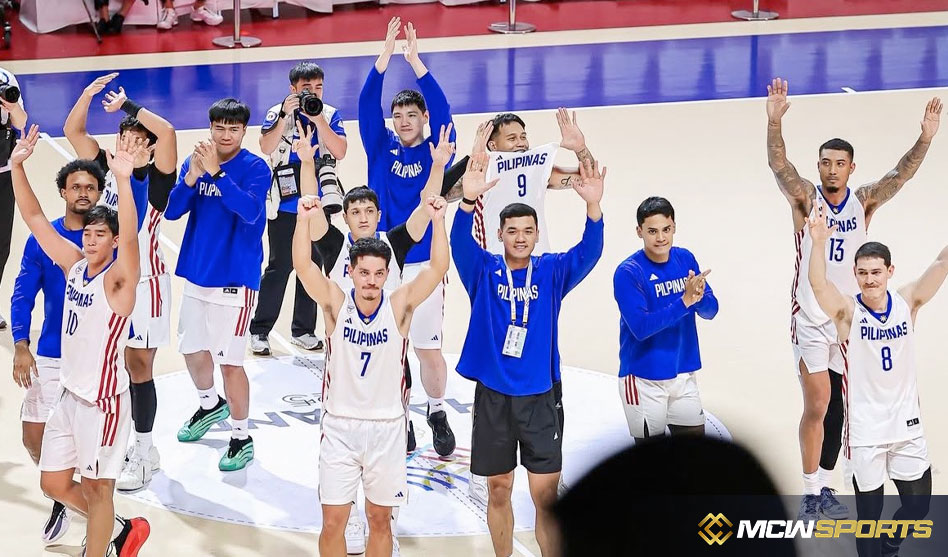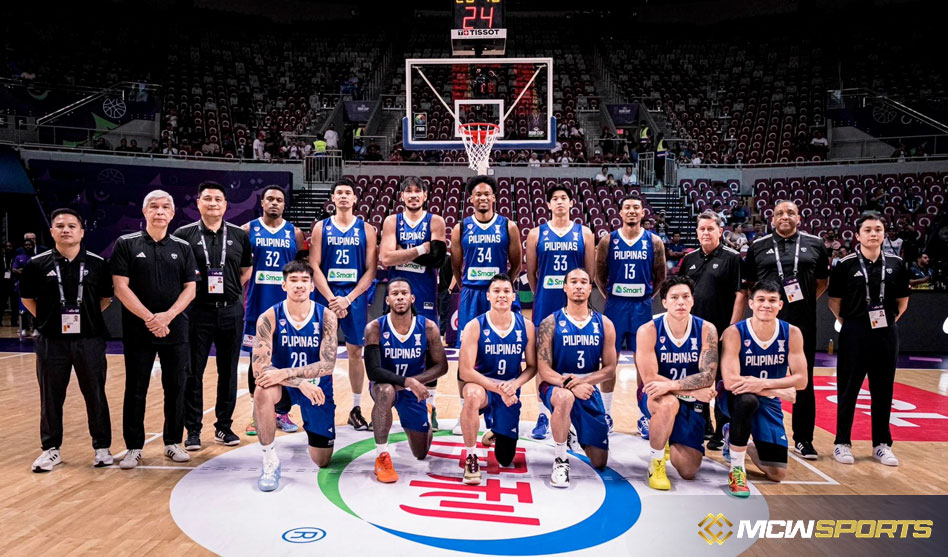MANILA, Philippines – After a crucial play involving TNT forward Calvin Oftana was incorrectly deemed a three-point attempt instead of a possible four-point play, the Philippine Basketball Association (PBA) officially acknowledged an error in officiating during Game 2 of the ongoing Philippine Cup semifinals between Rain or Shine Elasto Painters and TNT Tropang Giga. A dramatic 7.7 seconds later, the occurrence changed the course of the game and has caused the league to reevaluate its review processes and technical measures.
Oftana was fouled by Rain or Shine’s Gian Mamuyac as he attempted a long-range jumper near the four-point area, setting in motion the contentious play. Using the available in-house broadcast camera angles, game officials at the time analyzed the tape and finally judged the effort a three-point shot. The outcome was that Oftana was given three free throws, which he duly converted to bring the score even at 99 points and go into overtime. TNT took a 2-0 lead in the best-of-seven series with their 113-105 victory.
Nevertheless, the PBA Technical Committee, presided over by Deputy Commissioner Eric Castro, recognized the incorrectness of the call following additional examination and examination of camera angles that were unavailable during the live review. Oftana should have been awarded four free throws instead of three, according to league rules, as his feet were actually outside the four-point line when the ball made contact, as confirmed by the committee in a league statement. Because of the broadcast feed’s inherent constraints and the restricted number of camera angles available during live review, the referees made the mistake.
The PBA stressed that its officiating crew followed all current protocols for video review and made the ruling using the best possible viewpoint. However, the league admitted fault and accepted responsibility for the misstep in judgment. The recognition is in response to the increasing demands for better and more consistent methods of officiating, particularly in pivotal playoff games, from clubs, players, and fans.
The oversight has also cast doubt on the efficacy of the league’s video review system and its use of technology in officiating. The incident highlights the shortcomings of the present system, even though replay reviews have been implemented by the PBA to resolve controversial decisions in recent seasons. Border calls and contact evaluations are examples of high-stakes decisions that could be impacted by the usage of broadcast camera angles alone, which aren’t necessarily ideal for officiating review.
The PBA has pledged to reassess its review process in response to the occurrence. In order to make future assessments more accurate, the league is constantly contemplating improvements, according to Deputy Commissioner Castro. One of these additions would be to install more cameras, especially around the four-point range and the sideline regions. The league is also looking into ways to improve communication between officials and the technical committee during game delays, as well as slow-motion replay stream integration.
The decision did not affect the final score (TNT won the game in overtime), but it did cast doubt on the reliability of officials in high-pressure situations. There are those who believe that TNT might have avoided the extra workload for their starters and potentially shifted the series momentum if Oftana had been given four free throws. This would have allowed them to win in regulation.
However, the verdict may have a more noticeable impact on Rain or Shine. The squad clearly saw the sequence as crucial, even though head coach Yeng Guiao has stayed out of the public eye to protest. Even if it doesn’t change the official score or provide any other way to appeal, the PBA’s acknowledgement does provide some closure. Nonetheless, it’s a big deal for keeping officials accountable and open.
By taking this action, the PBA is showing its teams and supporters that it is still dedicated to playing by the rules and getting better. The league hopes that by being clean and promising to fix the problem, it can restore faith in its officiating standards just when the season is heating up.
Both the teams’ on-court play and the PBA’s handling of game officiating and decision-making will come under further scrutiny as the semifinals go. The reliability and precision of the referees’ calls will be crucial in maintaining fair play as the pressure mounts in every match. After their previous escape, TNT is playing with a 2-0 lead and a greater feeling of urgency. The pressure of an opponent’s momentum and the regret of a wasted opportunity will be too much for Rain or Shine to bear.
A watershed moment in the PBA’s continuous quest to improve its officiating techniques occurred with the incident involving Calvin Oftana’s attempted four-point play. While highlighting the importance of officiating in deciding outcomes at the top levels of professional basketball in the country, the league’s readiness to publicly acknowledge its own mistake provides the framework for systemic changes.

 English
English










